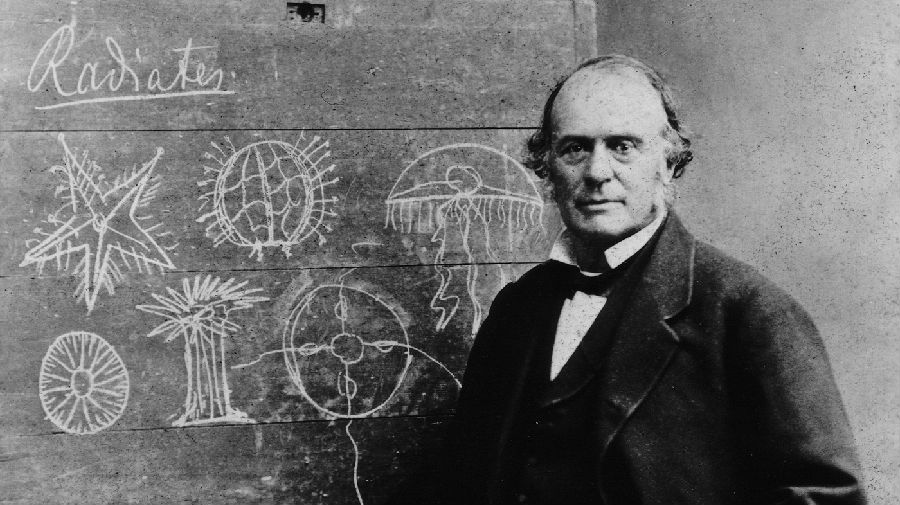He lent Agassiz his notes—then came very much to regret it as Agassiz increasingly got the credit for what Schimper felt, with some legitimacy, was his theory. Charpentier likewise ended up a bitter enemy of his old friend. Alexander von Humboldt, yet another friend, may have had Agassiz at least partly in mind when he observed that there are three stages in scientific discovery: first, people deny that it is true; then they deny that it is important; finally they credit the wrong person.
他把他的筆記借給了阿加西斯——后來他為此懊悔不已,因?yàn)榘⒓游魉乖絹碓桨阉挠^點(diǎn)據(jù)為已有,而希姆帕爾合情合理地覺得那是他的理論。夏龐蒂埃最后也成了他老朋友的死對(duì)頭。亞歷山大·馮·洪堡也是阿加西斯的朋友。他曾經(jīng)這樣論述科學(xué)發(fā)現(xiàn)的三個(gè)階段:首先,人們拒絕承認(rèn)它是正確的;然后,人們拒絕承認(rèn)它的重要性;最后,人們把功勞歸于別人。

At all events, Agassiz made the field his own. In his quest to understand the dynamics of glaciation, he went everywhere—deep into dangerous crevasses and up to the summits of the craggiest Alpine peaks, often apparently unaware that he and his team were the first to climb them. Nearly everywhere Agassiz encountered an unyielding reluctance to accept his theories. Humboldt urged him to return to his area of real expertise, fossil fish, and give up this mad obsession with ice, but Agassiz was a man possessed by an idea.
話雖如此,阿加西斯還是致力于這一領(lǐng)域。為了了解冰川作用力,他哪里都去——鉆進(jìn)極其危險(xiǎn)的裂縫深處,爬上極為陡峭的阿爾卑斯山峰,而且往往好像不知道,他和他的隊(duì)員所攀登的是人類以前從未登臨過的山峰。可是,幾乎無論阿加西斯到哪里,人們對(duì)于他的理論總是將信將疑。洪堡要求他停止這種對(duì)于冰川的近乎狂熱的考察,重新回到他所擅長(zhǎng)的魚類化石研究上來,可是阿加西斯是個(gè)受一種觀點(diǎn)支配的人。
Agassiz's theory found even less support in Britain, where most naturalists had never seen a glacier and often couldn't grasp the crushing forces that ice in bulk exerts. "Could scratches and polish just be due to ice?" asked Roderick Murchison in a mocking tone at one meeting, evidently imagining the rocks as covered in a kind of light and glassy rime. To his dying day, he expressed the frankest incredulity at those "ice-mad" geologists who believed that glaciers could account for so much.
在英國(guó),支持阿加西斯理論的人更是少得可憐,因?yàn)槟抢锏拇蠖鄶?shù)博物學(xué)家從未見過冰川,往往無從理解冰川巨大的作用力。“難道巖石層面刮擦和磨光的痕跡僅僅歸因于冰川作用嗎?”在一次會(huì)議上,羅德里克·莫奇生以一種嘲諷的口吻問道,顯然想當(dāng)然地認(rèn)為這是因?yàn)槟切r石表面覆蓋著一種又輕又滑的冰霜。直到他臨死的時(shí)候,他都對(duì)那些把什么都?xì)w因于冰川作用的。“冰川狂”地質(zhì)學(xué)家們表示出強(qiáng)烈的不信任感。












